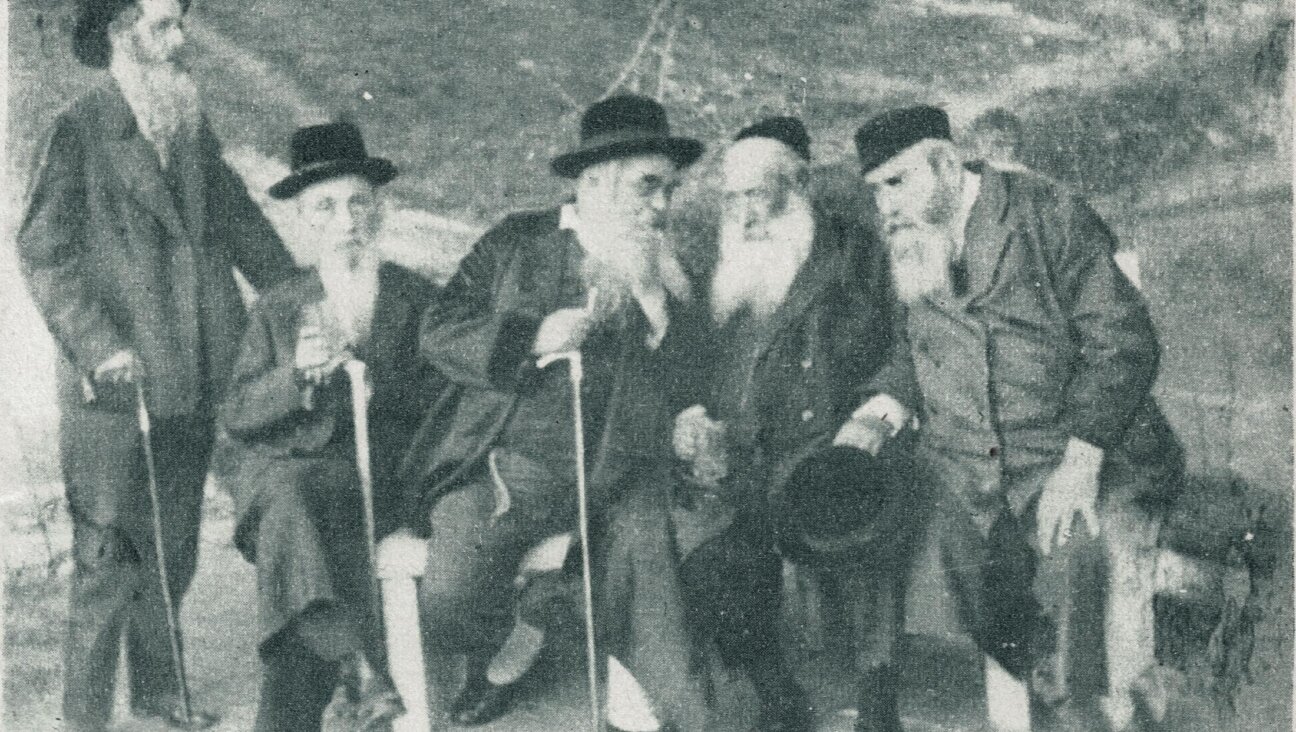VIDEO: Watch us make a delicious vegetarian version of the Shabbat stew — cholent
Both the dish and the word first appeared in the Ashkenazi Jewish community of France about 800 years ago
As we begin the chilly month of November, there’s nothing like a hearty bowl of cholent to warm your tummy!
Cholent, also called chulent, is a Jewish stew that simmers overnight — ideally, in a slow cooker — in order to be eaten at noon on Shabbat. As Asia Vaisman, director of the Yiddish Book Center’s Yiddish Language Institute, writes:
On Saturday mornings, the smell of slow-cooking meat, potatoes, and beans wafts through the air. This savory stew, called tsholnt (more commonly spelled “cholent” in English), has been a way for observant Jews to enjoy hot food on shabes, the day of rest, for centuries. According to religious laws, it is forbidden to light a fire and cook food on the Sabbath day. How, then, does one keep food warm in the cold winter months? The raw ingredients are assembled in a pot on Friday afternoon, before sundown, and then left in the oven to cook over a low flame overnight, providing a hot meal the following day.
In this clip, we show you how to make a delicious vegetarian version of cholent. It’s a perfect alternative for your vegetarian and vegan guests, as well as for those who are looking to reduce their environmental impact or need to watch their fat or cholesterol intake.
Cholent is actually a very old dish. Both the word and the food first appeared in the Ashkenazi Jewish community of France about 800 years ago. There are a number of theories about the etymology of the word, but the most accepted answer is the one explained by Yiddish linguist Max Weinreich in his landmark book History of the Yiddish Language. Weinreich traces the etymology of cholent to the Old French verb chaloir, which means “to warm.”
Interestingly, a Sephardi version of the dish is called hamin — a word related to the Hebrew word for “hot”: kham. There’s good reason that the term “cholent” is related to the word hot. Eating it cold from the fridge simply doesn’t compare!
A message from our Publisher & CEO Rachel Fishman Feddersen

I hope you appreciated this article. Before you go, I’d like to ask you to please support the Forward’s award-winning, nonprofit journalism during this critical time.
At a time when other newsrooms are closing or cutting back, the Forward has removed its paywall and invested additional resources to report on the ground from Israel and around the U.S. on the impact of the war, rising antisemitism and polarized discourse.
Readers like you make it all possible. Support our work by becoming a Forward Member and connect with our journalism and your community.
— Rachel Fishman Feddersen, Publisher and CEO






























